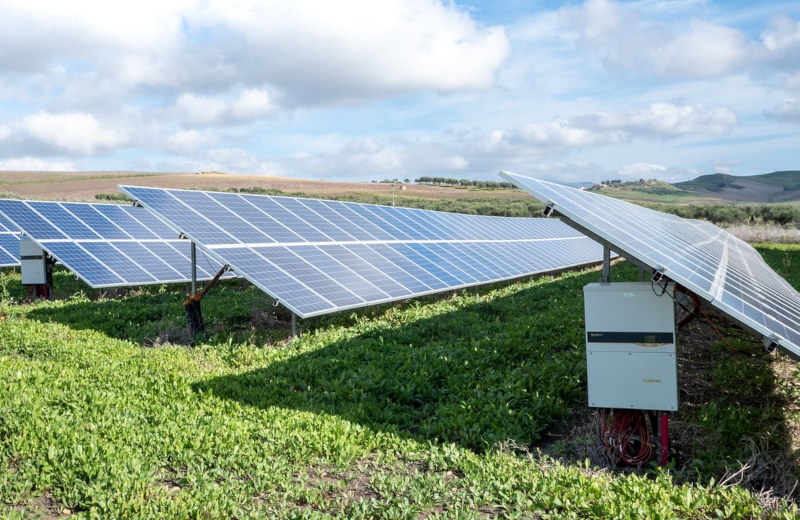
With Eskom warning that its system is likely to remain constrained for the near future and applying for hefty price hikes with the National Energy Regulator of South Africa, many South African companies and households are looking to become more independent from the national power grid.
The conversation inevitably turns to the benefits of installing solar power on their property. However, misconceptions abound about the costs, implications and benefits of solar power.
Let’s look at 5 of the myths about solar power and what you should really expect when you invest in a solar installation:
1: ‘Solar power means freedom from load shedding’
One of the reasons people and businesses first start investigating solar power is that they’re tired of Eskom load shedding or municipal power outages. But for budgetary reasons, most people and companies will opt for a grid-tied system rather than investing in a system that includes batteries.
With a grid-tied system, the inverter will shutdown and stop producing during an outage for safety reasons.
If you want to keep running through load shedding, you will need to invest in either a generator (which has its own negatives) or a hybrid solar system with batteries to store power for savings/energy security. With a hybrid system, some essential loads on your property will stay on during load shedding, while non-essential loads will be turned off.
2: ‘Going off-grid will enable me to save a fortune on power bills’
We’ve seen Eskom and municipalities pass some steep electricity increases in recent years. Many electricity users are wondering whether it’s viable to take their property off the municipal electricity grid to save money. However, the costs of specifying a system with inverters, solar panels, generators and battery storage to provide complete grid-independence are too high to be attractive for most properties.
The more solar panels you install, the more of your daytime electricity consumption will be catered for by your solar generation. Depending on your usage pattern, batteries can also be added for night time savings as the budget allows. This overall can lead to a rapid payback period for your solar investment.
3: ‘It’s prohibitively expensive to install solar power’
Many businesses and homeowners like the idea of solar power, but worry about the capital costs. However, you can start small and grow your solar installation, so that you are using less grid power and bringing your electricity bill down over time. A solar hybrid system allows you to save on your monthly electrical bill while also safeguarding your home or business against load shedding.
Solar hybrid systems are modular and can be installed in stages, allowing you to spread the cost over years. If your priority is to save money on electricity, you can start with solar panels and an inverter, adding more panels and batteries over time. If your goal is to have a reliable power supply during outages, you can begin with lithium batteries and a hybrid inverter, adding solar panels over time.
Solar panels will pay for themselves in electricity savings over a number of years. Batteries are a significant capital cost, and the more you install, the slower the payback period will be. We recommend lithium batteries over lead-acid (deep cycle AGM/Gel) batteries. The batteries have a higher upfront cost, but last 10 years or more compared with the two to three year lifespan of lead-acid batteries.
4: ‘I will be able to make money selling power to my neighbours and the municipality’
Many people imagine that they can make money by selling ‘their’ power into the municipal grid or even to their neighbours. However, commercial and residential customers are not allowed to be ‘net generators’, in other words, generate and export more power than what you consume over a given period. You are also not permitted to sell your excess power to neighbours.
When it comes to exporting power back to the grid, this is not something that happens by default. You need to apply to your municipality to install a special meter that will track how much power you use from and supply to the grid. Not all municipalities allow exporting. On days you generate more power than your property needs, the excess will be exported to the grid.
The municipality will provide you with a generation offset amount on your monthly bill according to the amount of power you exported to the grid. Even if you export more power than you use, the municipality will not pay you cash but offset your account (given that you are not a net generator). While the rate you receive for the power you “sell” varies between municipalities, most pay significantly less for the power you export than they charge for the power you import. Therefore it is always advisable to use what you produce first and then export excess back to the grid, commonly referred to as optimized self-consumption.
5: ‘Solar power is no good on cloudy days or in winter’
With plentiful sun year-round, South Africa was made for solar power. However, some potential solar users wonder how cloudy weather or the shorter winter days will affect generation. It is true that you will generate less power during winter or when it’s raining, but your panels will keep working. Bear in mind that solar is part of the power mix even in cold countries like Germany and the UK.
During the daytime, any sunlight that hits the surface of a solar panel is converted into electricity. Production may drop when the weather is less than ideal, but you will still be generating enough to cover some of your needs. You can mitigate shortfalls in winter by reducing your power usage, optimising the tilt and placement of your panels, or adding more solar panels to your installation.
By Christiaan Hattingh, MD, AWPower, a solar energy provider.
Edited by Zintle Nkohla
Follow Zintle Nkohla
Follow IT News Africa